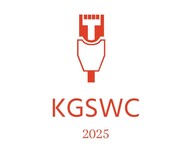 | IWSIoT 2025: 4th International Workshop on Semantic IoT HTWK, Leipzig, Germany, November 26-28, 2025 |
| Conference website | https://kgsw.org/IWSIoT_2025_4th_International_Workshop_on_Semantic_IoT.php |
| Submission link | https://easychair.org/conferences/?conf=iwsiot2025 |
| Poster | download |
| Submission deadline | October 31, 2025 |
Introduction
The Semantic Internet of Things (SIoT) refers to the integration of semantic technologies into the Internet of Things (IoT) ecosystem. Unlike conventional IoT, which primarily emphasizes device connectivity and data exchange, SIoT introduces meaning, structure, and contextual understanding to the data generated by IoT devices. Semantic technologies—such as ontologies, linked data, and knowledge graphs—enable systems to not only exchange data but also interpret, reason, and derive knowledge from it.
By embedding semantics, SIoT enhances interoperability across heterogeneous devices, facilitates context-aware decision-making, and improves the usability of IoT-based services and applications. It acts as a bridge between the physical environment of sensors, devices, and actuators and the digital domain of semantic reasoning and knowledge representation, thereby transforming raw IoT data into actionable intelligence.
The field of SIoT is rapidly evolving, particularly with its convergence with artificial intelligence (AI), machine learning (ML), and big data analytics. This synergy empowers IoT systems to become more adaptive, autonomous, and intelligent, opening new possibilities in domains such as smart cities, healthcare, transportation, and industrial automation.
Objective
The primary objective of SIoT is to augment the IoT ecosystem with semantic intelligence in order to:
- Enhance interoperability – Enable seamless communication between heterogeneous devices, systems, and services across diverse domains.
- Facilitate context-aware reasoning – Support systems in interpreting data meaningfully to improve automation, personalization, and decision-making.
- Transform data into knowledge – Convert raw sensor outputs into structured, machine-interpretable information that can be reasoned over.
- Support intelligent applications – Leverage the integration of semantics with AI and ML to create adaptive, predictive, and self-organizing IoT environments.
- Promote cross-domain scalability – Enable IoT solutions to function across industries, ensuring broader adoption and innovation.
By achieving these objectives, SIoT aims to create smarter, more interconnected ecosystems where devices and services do not merely coexist but actively collaborate to deliver intelligent, human-centric outcomes.
We welcome the submission of original and high-quality research contributions addressing the topics below.
Topics of Interest (but not limited to):
- Semantic Reasoning and Decision-Making in IoT environments
- Data Interoperability and Integration across heterogeneous IoT platforms
- Context-Awareness and Ambient Intelligence for adaptive IoT services
- Semantic Stream Processing and real-time knowledge extraction
- Privacy, Trust, and Security in semantic-enabled intelligent IoT systems
- IoT Systems and Architectures for semantic data acquisition, storage, and large-scale processing
- Semantic Artificial Intelligence (AI) and Machine Learning for IoT data understanding
- Ontology Engineering and Knowledge Graphs for IoT data modeling and representation
- Semantic Middleware and Frameworks enabling smart IoT ecosystems
- Semantic-Enhanced IoT Applications in smart cities, healthcare, agriculture, transportation, and industry 4.0
- Edge, Fog, and Cloud Computing for semantics-driven IoT data processing
- Human–IoT Interaction and user-centric semantic IoT solutions
- Cross-Disciplinary Perspectives on Semantic IoT, including social, ethical, and legal implications
- Semantic Digital Twins and virtual representations of physical IoT systems
- Explainable AI (XAI) in Semantic IoT for transparent decision-making
- Scalability and Performance Optimization in large-scale semantic IoT deployments
- Standards, Protocols, and Interoperability Frameworks for semantic IoT integration
- Big Data and Semantic Analytics for IoT knowledge discovery
- Integration of Semantic IoT with Emerging Technologies (Blockchain, 5G/6G, Metaverse, AR/VR)
- Testbeds, Benchmarks, and Case Studies demonstrating real-world semantic IoT implementations
Workshop Chairs
- Fatima Zahra Amara, University of Bari, Italy
- Abhisek Sharma, NIT Kurukshetra, India and iiterate Technologies GmbH, Germany
- Meriem Djezzar, University of Abbes Laghrour, Khenchela, Algeria
- Mounir Hemam, University of Abbes Laghrour, Khenchela, Algeria
- Sanju Tiwari, Sharda University, India and TIB Hannover, Germany
Submission
We welcome the following types of contributions:
- Full research papers (10-15 pages): Finished or consolidated R&D works, to be included in one of the Workshop topics.
- Short papers (4-6 pages): Ongoing works with relevant preliminary results, opened to discussion.
At least one author of each accepted paper must register for the workshop in order to present the paper at the conference. For further instructions please refer to the KGSWC 2025 page.
Important Dates
- Workshop paper submission due: 31 October 2025
- Workshop paper notifications: 15 November 2025
- Workshop paper camera-ready versions due: 20 November 2025
- Workshop: 25 November 2025
All deadlines are 23:59 anywhere on earth (AoE).
Publication
All accepted workshop papers will be published in CEUR Proceedings. The best papers from this workshop may be included in the supplementary proceedings of KGSWC 2025.
Program Committee
- Bilal Ben Mahria, Independent, Morocco
- Deepak Gerard, Manipal Institute of Technology Bengaluru, Manipal Academy of Higher Education, India
- Fatima Zahra Amara, University of Abbes Laghrour Khenchela, Algeria
- Fernando Ortiz Rodriguez, Universidad Autonoma de Tamaulipas, Mexico
- Lynda Djakhdjakha, University of Guelma, Algeria
- Meriem Djezzar, University of Abbes Laghrour Khenchela, Algeria
- Mounir Hemam, University of Abbes Laghrour Khenchela, Algeria
- Moufida Maimour, University of Lorraine, France
- Mouhamed Madani Hafidi, University of Abbes Laghrour Khenchela, Algeria
- Sanju Tiwari, Universidad Autonoma de Tamaulipas, Mexico
- Sven Groppe, University of Lübeck, Germany
- Youcef Bezza, University of Abbes Laghrour Khenchela, Algeria
- Younes Djaghloul, CRP Henri Tudor, Luxembourg
- Zianou Ahmed Seghir, University of Abbes Laghrour Khenchela, Algeria
